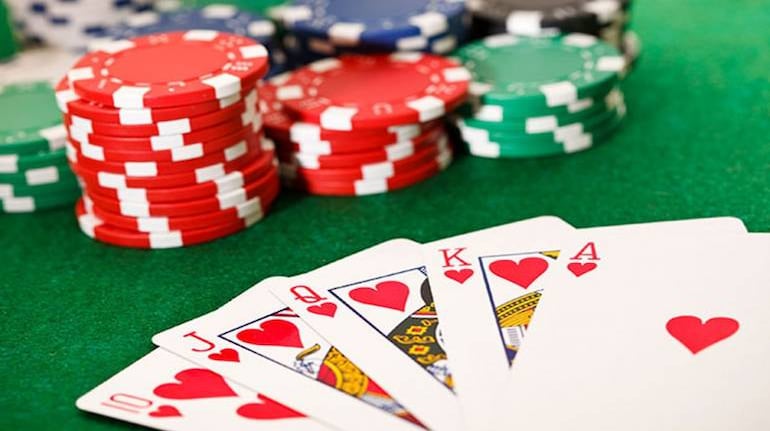



Karnataka government on September 29 promulgated an ordinance to amend Karnataka Goods and Services Tax Act to impose 28 percent Goods and Services Tax (GST) on online money gaming, casinos, and racecourses, following Governor Thawar Chand Gehlot's assent.
The move comes ahead of the Union government's planned implementation of the tax regime from October 1.
Given that the state legislature is currently not in session and is unlikely to convene in the near future, Karnataka has decided to choose the ordinance route for the amendment.
Karnataka Commissioner for Commercial Taxes C Shikha told Moneycontrol that the state is expected to generate around Rs 1,500 crore. "Karnataka is among the first major states to implement such an ordinance. Only a few states, such as Maharashtra and Haryana, have done so far," she said.
Also read: Explained: GST Council’s 28% tax on India’s real-money gaming sector
Will not legalise casinos and gambling
The notification stated that these amendments do not override existing laws that may prohibit, restrict, or regulate betting, casinos, gambling, horse racing, lottery or online money gaming.
The imposition of taxes on casinos, horse racing and online money gaming does not legitimise these practices in the eyes of the law. Any criminal activities associated with these practices are not exempt from criminal prosecution, as clarified by the ordinance.
India gears up for Oct 1 tax rollout
This move comes after the Central Board of Indirect Taxes and Customs (CBIC) Chairman Sanjay Kumar Agarwal said on September 28 that the government is ready to implement 28 percent GST on real-money gaming from October 1.
"States need to pass in their assemblies or issue ordinance by September 30 to implement 28 percent GST on online (real-money) gaming from October 1," he said.
In July 2023, the GST Council decided to impose the top GST slab of 28 percent on the full face value irrespective of whether it is a game of skill or chance.
On August 2, it provided partial relief by recommending that GST be levied on deposits instead of every bet placed, in order to avoid repeat taxation. Real-money gaming platforms currently pay an 18 percent GST on platform fees.
The council, headed by Finance Minister Nirmala Sitharaman, had said it would review this decision six months after implementation. The next GST Council meeting is scheduled to take place on October 7.
On August 11, the last day of the Monsoon Session, Sitharaman introduced bills to amend the Central and Integrated GST laws and it was passed in both Lok Sabha and Rajya Sabha. President Droupadi Murmu also gave her assent to the amendments on August 19.
Subsequently, many states including Haryana, Gujarat, Goa, Maharashtra, Madhya Pradesh, and Arunachal Pradesh have passed similar amendments to their respective state GST laws.
Retrospective tax problem
This development also comes at a time when real-money gaming companies such as Gameskraft and Dream11 are receiving retrospective tax notices from GST authorities.
Agarwal said these notices are part of the uniform stand taken by the department in terms of interpretation of law.
Industry executives however say they could spell the death knell for the burgeoning sector. The forthcoming 28 percent GST tax regime combined with potential retrospective taxation dues will make the overall operations unfeasible, likely leading many companies to wind down their businesses, they said.
Real-money gaming segment accounted for 77 percent of India's gaming sector revenues in 2022, which stood at Rs 13,500 crore, according to a recent FICCI-EY report. It is set to grow to Rs 16,700 crore in 2023 and Rs 23,100 crore in 2025, the report added.
Discover the latest Business News, Sensex, and Nifty updates. Obtain Personal Finance insights, tax queries, and expert opinions on Moneycontrol or download the Moneycontrol App to stay updated!
Find the best of Al News in one place, specially curated for you every weekend.
Stay on top of the latest tech trends and biggest startup news.